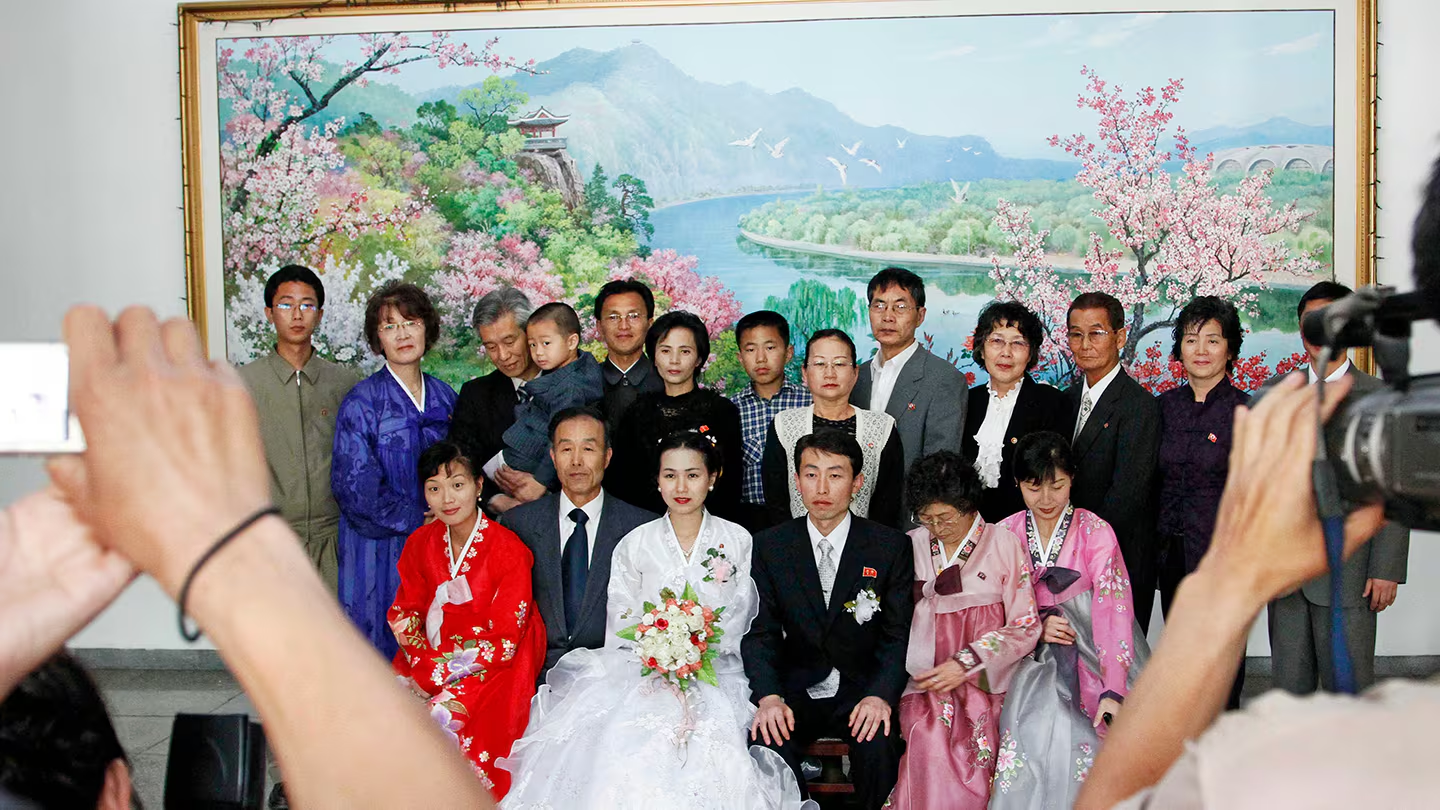Divorce in North Korea is not just a personal matter but a political and ideological issue. Couples who divorce face dire consequences, including imprisonment in labor camps, as the regime intensifies efforts to preserve social harmony under its strict communist ideals.
Divorce as an Anti-Socialist Act
In North Korea, divorce is seen as an affront to socialism and deeply rooted Confucian values that emphasize family unity. Obtaining a divorce is a complex process requiring the consent of both spouses and government approval.
Historically, the spouse initiating the divorce bore the brunt of the punishment, even in cases of domestic violence. However, recent policy changes have shifted the focus, punishing both partners equally.
The government’s stance on divorce reflects its broader ideological goals. Officials argue that divorce weakens societal cohesion and undermines the family, which they consider the “cell of society.”
Read : Russia Burning Faces of Dead North Korean Soldiers, Zelenskyy Shares Video
This has led to punitive measures such as transferring divorced couples directly to labor camps after court rulings. Between one and six months of imprisonment in these camps is now the norm, regardless of the circumstances leading to the split.
Read : Kim Jong Un’s Sister Calls South Korea’s Live-Fire Drills ‘Suicidal Hysteria’
The COVID-19 pandemic exacerbated marital conflicts, as economic hardships made daily survival a challenge for most families. With a noticeable rise in divorce rates, the government responded with harsher penalties, intensifying its campaign to deter couples from separating.
Punitive Measures and Gender Inequality
Labor camps for divorcees are a harsh reality for North Korean citizens. Reports reveal that women often receive harsher sentences than men, reflecting broader gender disparities in the country. A former female detainee recounted how women are typically punished for longer durations and face harsher living conditions in the camps.
The root causes of divorce, such as domestic violence and financial stress, are often ignored by the state. Many women seek separation due to abusive relationships exacerbated by economic hardships. Yet, these women face stigmatization and harsher penalties, effectively punishing them for attempting to escape abusive environments.

Special considerations are occasionally extended to women with young children, allowing them to commute to labor camps. However, this concession does little to address the systemic issues driving divorce. As financial difficulties and domestic conflicts persist, more women may choose to forgo marriage altogether, fearing the potential consequences of separation.
For government officials, the consequences of divorce extend beyond imprisonment. Divorce can lead to expulsion from the ruling Korean Workers’ Party, stripping individuals of privileges such as access to better housing, education, and employment opportunities. This punitive approach is designed to deter individuals from seeking divorce but often leads to deeper resentment and disillusionment among citizens.
Social Campaigns and the Future of Marriage
In addition to punitive measures, the government has launched educational campaigns to discourage divorce. Under the banner of “building a harmonious family,” lectures targeting women emphasize the societal importance of maintaining marriages. However, these campaigns often rely on public shaming and moralistic rhetoric, failing to address the underlying causes of marital discord.

Despite these efforts, divorce rates in North Korea remain a concern for the regime. Anecdotal evidence suggests that financial stress, domestic violence, and dissatisfaction with rigid societal norms are driving factors. Without meaningful reforms to address these issues, the government’s hardline stance may lead to unintended consequences, such as a decline in marriage rates among younger generations.
The contrast between North and South Korea is stark. In South Korea, where divorce is not stigmatized and women enjoy greater rights, the divorce rate is 1.8 per 1,000 people. Among North Korean defectors resettled in the South, divorce rates are notably higher, reflecting the challenges they face in adapting to a new society.
The future of marriage and divorce in North Korea remains uncertain. As the regime continues to prioritize ideological purity over practical solutions, many citizens may choose to avoid marriage altogether, fearing the personal and political repercussions of divorce.

